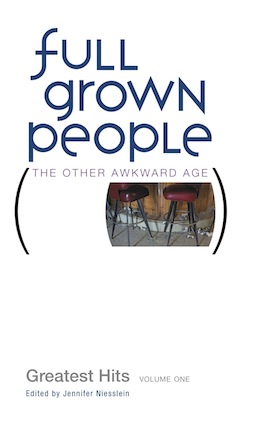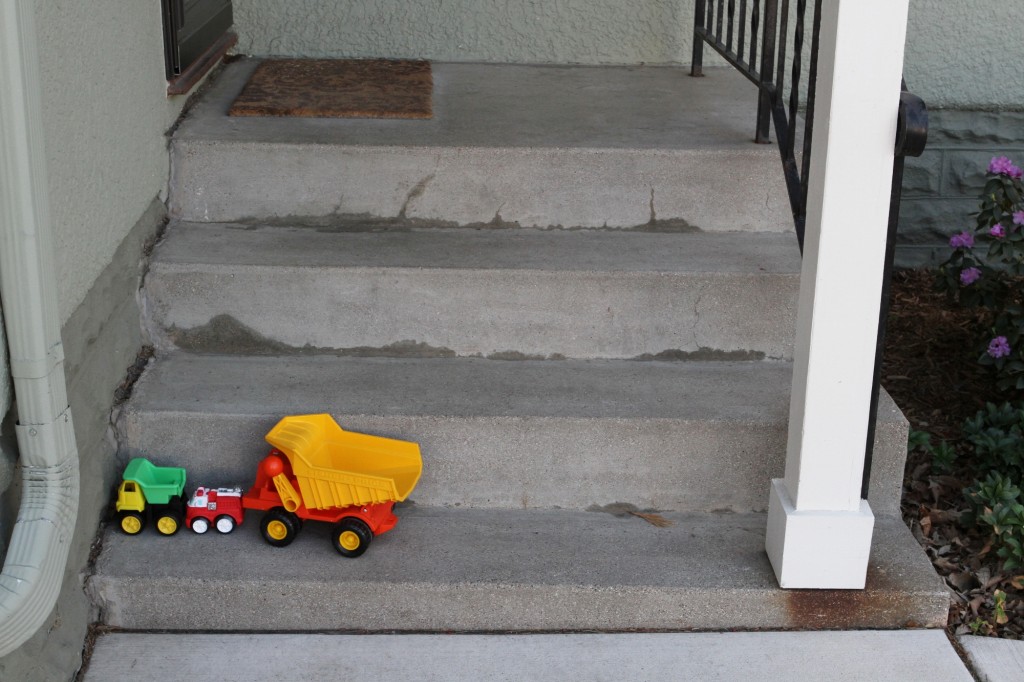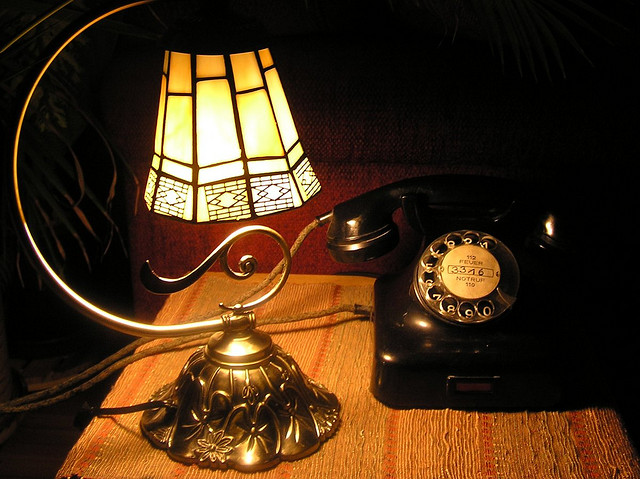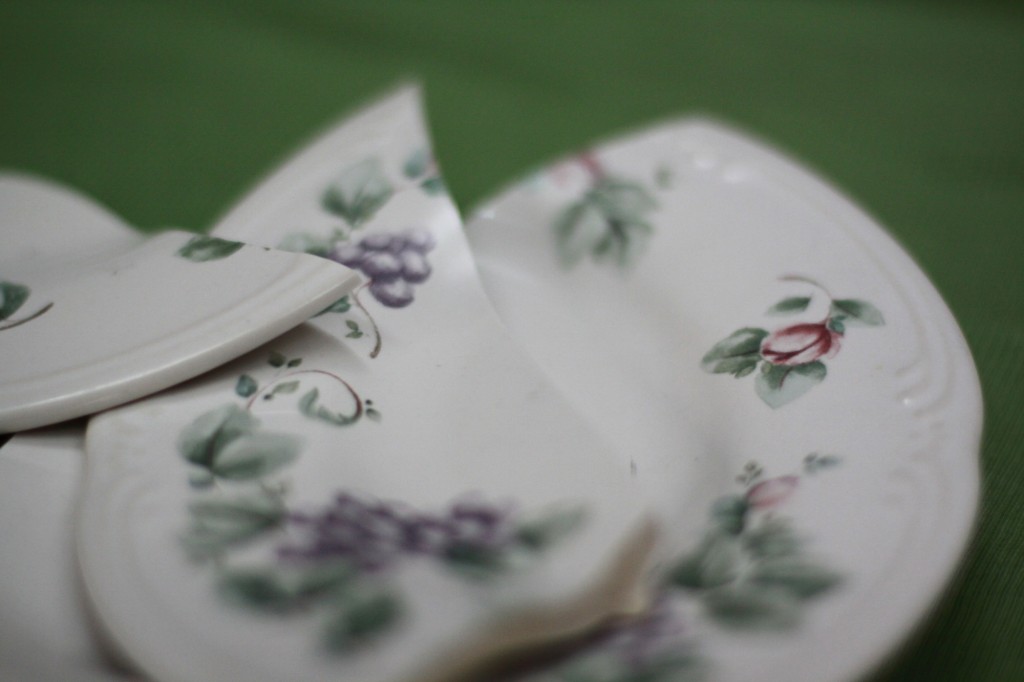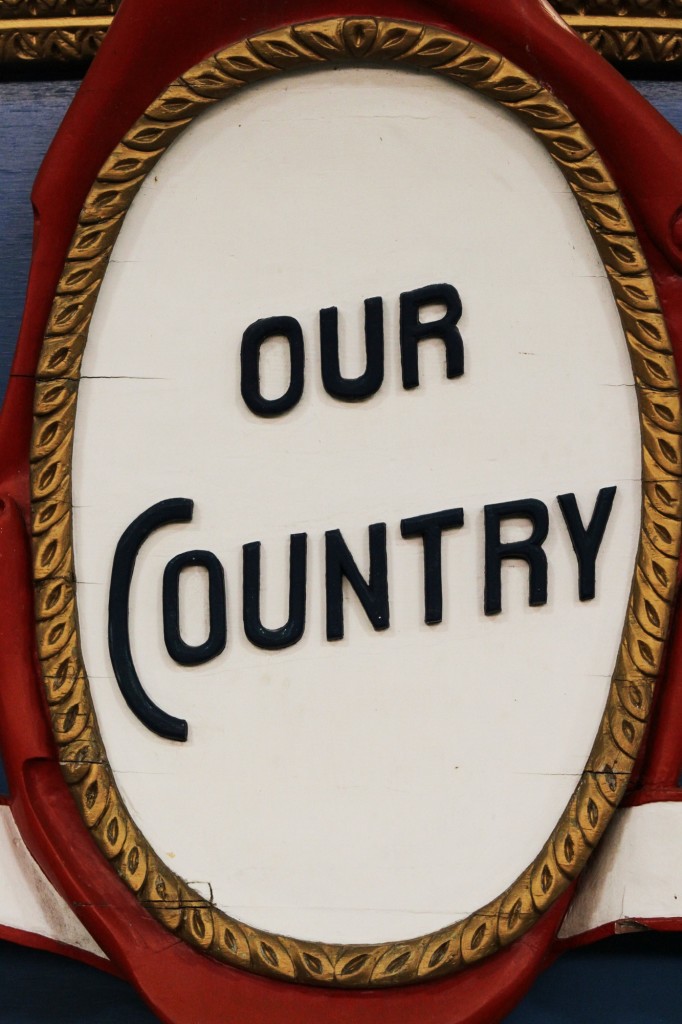
By Terry Barr
I watched this man take off his hat. It was one of those worker’s caps like the one in that old photo of Allen Ginsberg’s mother, Naomi, back in the twenties.
Before he took off the cap, the hair sticking out on both sides suggested a younger man. It was rich and lush and very black. But once he doffed it, I could see the dye-line, the gray eking out in the spots that he missed. He was completely bald on top, too. Something wasn’t right, but I couldn’t make myself look away fast enough.
“Terry?”
His companion. She stared as if affronted that I hadn’t spoken first—that I hadn’t recognized her.
“Who’s that, Daddy?”
I was at supper with my four-year-old daughter, Pari. Her sister had just been born the day before, and I was trying to show Pari that she was still special to me, that she would always be my first love. I had let her order a chocolate milkshake for supper at this upscale Greek diner along with a funny-face waffle, an indulgence that I hoped her mother would never discover.
“Just someone I know from our Amnesty group, sweetie.”
“Oh. What’s her name?”
“Cathy, I think.”
“Oh.” She wisely returned to her waffle.
However, Cathy’s relentless stare kept burning into me, and so unwisely I spoke.
“Hi Cathy. How are you?”
“Oh, I’m fine. Terry, this is my friend.”
And maybe she did say his name, and maybe it was Marvin. In any case, Marvin turned to me. He wore heavy, black-rimmed glasses, a yellow Polo shirt, and green hiking shorts. He straddled his chair, his hairy legs protruding from either side. They were the sort of legs one sees on short, but active Jewish men, like my cousin Arnold’s son, Donald: legs that are muscular, compressed, and slightly bowed. Legs used to supporting a thickish frame. Legs that I thought could transport their bearer quickly and with ease in case of trouble.
“So, how do you two know each other?” he asked Cathy, as if there were something between us, something suspicious in the air. Which, of course, there was.
“Oh, Terry and I are members of our local Amnesty International group.”
“Amnesty International?” He turned to me then. “Tell me about that. I’m all ears!”
And he was, though if I stared at his ears, I’d just keep noticing that dye-line: the one separating hair that was too dark from the natural more salt-than-pepper color. Hair highlighted by his pale bronze dome.
“You’ve never heard of Amnesty International?”
I wondered even then why I was about to go on talking to the strange friend of a woman I barely knew, a woman I wanted to know less of. Besides, this was supposed to be a special night with my beloved first daughter who, at this point, was slurping the bottom of her chocolate shake.
“No, I haven’t, so please tell me more. I’m really curious about that name, Amnesty, and what it refers to.”
I explained as briefly as possible about prisoners of conscience; about letter-writing appeals; about volunteers and human rights abuses. Who can say what he heard or didn’t hear; what impacted him or bored him? But what I said next truly did penetrate those ears.
“We work for prisoners all over the world, though by policy, we aren’t allowed to write appeals for prisoners in our own country. That’s because in some countries, the letter writer might then be arrested and thrown into prison or maybe even killed, so we want to ensure that the writer is safe. The only exception to that rule is in death penalty cases; there, you can write about prisoners in your own country. The U.S. has plenty of these cases.”
“Wait a minute. You mean that you aren’t free to protest prisoners in the U.S?”
“Right. As I said, it’s a general rule put in place especially to protect those in other countries who don’t have the same freedoms that we do. Plus, we wouldn’t want to single out a country that has more freedom and make it an exception to the policy.”
I thought I had explained this procedure pretty well. I thought that now I might be able to return to my daughter and our night together. We were heading back to the hospital soon, and visiting hours were growing short. I missed my wife and wanted to see our new baby, Layla.
“Not as free as we are? What makes you think that we’re free?”
I think now of all the things I could have said, “So long, buddy” being foremost. But, of course, feeling the need to defend our nation’s list of Rights and Freedoms, I kept talking: the Right to Free Speech; to Assemble; to keep a Free Press. The Right to eat peacefully in a Greek diner with your daughter without being interrupted by a shady-looking associate and her even shadier-looking partner, a stranger to you.
But this last right was being so easily violated by the pair that it just proved his point.
I looked over at Cathy then, and I remembered what I knew about her, reported to me by my wife who served on one of Amnesty’s subcommittees, the committee on Women’s Rights.
“She’s a member of BirthRight,” my wife said.
“What’s that?”
“A group that works for the rights of ‘the unborn.’”
Cathy had advocated that the subcommittee get BirthRight to endorse their work and be listed as a sponsor for an upcoming event. The subcommittee respectfully declined. Amnesty, despite appearances, refuses all political monikers and manifestos. Being non-political has allowed Amnesty to exist in places that other activist groups can’t. But to be completely honest, virtually everyone in our group was active in other political organizations: the ACLU, the Democratic Party, the Sierra Club. And no one I knew in our group, except Cathy, wanted to work against abortion rights, though if someone were imprisoned simply for speaking out against abortion, we would theoretically work for their release.
To my knowledge, Amnesty doesn’t consider a fetus to be a person. Actually, that’s not exactly true. Amnesty just takes no stand on this issue. But it does question and work against gender-directed abuses around the world—for instance, those who are victims of forced female genital mutilation or of rape and assault by governmental forces. Violations that are not anyone’s choice.
But now Cathy and Marvin were waiting on my response about freedom in our country, and all I could think about was BirthRight. And abortion, and where all of this was leading.
•••
Once, I got a girl pregnant. We hadn’t been dating long, but I knew that she was into me, maybe because once, she confessed that I was “the best thing that ever happened to her” since she’d started her graduate school program the previous fall. So much for what she got out of that Yeats seminar we had.
Of course she wasn’t on the pill. Is it worse that I asked first? That when she said, “No, I’m not,” but then didn’t request that I “be careful,” explosions didn’t erupt in my head?
In other words, we knew what we were doing in that very special way that really means we didn’t.
I didn’t love her; I barely even knew her. In fact, on my way to pick her up for our first date on a clear October night, driving down Kingston Pike, Knoxville’s busiest strip, past the Bearden Bowling Alley and the Half Shell Oyster House, I knew that I didn’t want to be going out on this date. Going out with her. I should have turned around then.
But of course, I didn’t. I have no idea why I asked her out now, and I’m pretty sure I didn’t know then, either. We had sex exactly twice.
Even when her phone call woke me at my parents’ house on a mid-December morning, the first morning of my semester break, I didn’t flinch. Much.
“So, what do you want to do?” I asked.
“I’m getting an abortion. But I need three hundred dollars. Can you help me?”
And so I went to my bank, withdrew the money from my savings account, wondering now what I was going to use to buy Christmas presents for my family, and mailed a money order to her.
Three days later, she had the abortion. She didn’t ask me to be there, and I didn’t offer. Her roommate went with her, I found out later. I saw her once more, when she gave me fifty dollars to help me pay my rent. A few months later, she was dating one of my grad school buddies. I had no regrets about that or how we ended.
For us, the abortion was the right thing to do because our lives together shouldn’t have started or continued with that sort of mistake. I’m sorry we were so stupid. I’m sorry she faced the procedure alone. I’m glad we had the right to do what we did, and I really don’t wonder what our child would have been like.
More than anything, I shudder to think of what would have happened to all of us had we decided to have the baby.
I do feel many emotions as I picture this time of my life, some thirty years ago now. But even after all that time, the feeling that lays strongest inside me is relief.
•••
I’m a little slow about becoming aware of those funny feelings that we all get. Or maybe it’s just that when I get them, I’m too slow to respond.
So as I stared at Marvin’s bald head, fringed with unrealistic hair, I realized that more than his hair was off. I know now that while Pari was finishing her funny face, I should have been calling for our check.
Instead, I looked at this strange fellow and asked, “Don’t you think we have more freedom than, say, people in Uganda, or Iran, or North Korea?”
“Don’t you think,” Marvin sneered, “that our government is watching us all the time, monitoring our phone calls, keeping tabs on what we watch, where we shop? What do you think all those cloudy tracks in the sky are?”
I remembered to breathe just then, and a new truth hit me.
“So, what do you do?”
“You don’t really want to know what I do.”
And in a sense, he was right. Ten minutes earlier, I couldn’t have cared less. Fifteen minutes earlier, he and his crazy legs didn’t exist.
If only we could abort certain scenes.
“Daddy, I’m finished.”
“Okay, sweetie.”
But I couldn’t stop now. It’s funny the challenges we choose to accept.
“No, go ahead and tell me what you do. I’m really interested.”
“Well, while people like you are out playing golf every day, people like me are working for something bigger.”
Now, I had taken two semesters of golf back in college, mainly to keep myself out of activities like tennis that would cause excess sweat and would necessitate a mid-day shower.
“Golf? That’s what you think I do?”
It’s strange what all can get in your way when you should be relating to your daughter, when you should be holding your other newborn daughter. Today, I’d avoid this scene like I would unsafe sex. In fact, just last night when I was sitting on a park bench outside my hotel—the Hyatt Regency—in downtown Louisville, a man scrambled to the bench across from me. He was smoking the butt of a cigarette. I had my IPod in, Wilco singing about “The Ashes of American Flags.” I knew immediately that this guy was off. I had seen him earlier at my lunch break; his eyes had the unfocused look of pure madness. And he was shaking. It was seven in the evening, temperature in the low eighties. I let the song finish, and as casually as I could, I left my bench for safer ground.
But with Marvin?
“No, man. I don’t play golf. I’m a teacher. And you don’t know anything about me,” I said.
“Well, if you must know, I’m part of the Patriot movement. We’re changing this country. Taking it back.”
I stared for a beat. I had heard of such “movements,” mainly from my Southern Poverty Law Center pamphlets like Human Rights Watch. And Klanwatch. Back then, in the mid-nineties, these movements were mainly underground.
What do any of us think of when we hear the word “patriot?” Nathan Hale? Sam Adams? The three-cornered hatted, three-point-stanced character who used to adorn the helmets of the former New England football team when they called themselves the Boston Patriots?
Then, “patriots” were showing up in places like Oklahoma City, Ruby Ridge, Waco. Two years later, one would set off a bomb at Atlanta’s Centennial Park. Another, or actually the same guy, would bomb a women’s clinic in Birmingham, my hometown.
And in my current home of Greenville, South Carolina, a four-year-old boy would get arrested for blocking the entrance to yet another women’s clinic. He was our neighbor, and now he’d have a criminal record. On the news that night, his mother would refer to him as a “hero…a real patriot.”
I wondered then about our definitions, our stances, the people we meet. This same mother once called me over as my wife and daughter and I were out walking. She wanted us to meet her mother, a grinning gargoyle of an old woman who was climbing out of a minivan and wearing an oversized t-shirt.
On that shirt was the silkscreened image of an aborted fetus, about three times the size it would have been. Below the image, the caption proclaimed, “This one might have been yours.”
We couldn’t escape fast enough.
I hope my daughter doesn’t remember that scene, as I do, although I realize, of course, that now she very well might.
•••
The waitress brought our check. I gathered my little girl up, looked back at Cathy and Marvin, and said, “Nice talking to you.”
I’ve always had such good manners.
I don’t remember what—if anything—they said, and I don’t care. I’m thankful that I never saw either of them again, although every time I get an edition of Klanwatch, I scan it looking for news, for the people I barely know. And I’m even more thankful for the freedom to associate with or to avoid whomever I want.
•••
TERRY BARR’s essays have appeared widely in such publications as Graze, Compose, Under the Sun, Tell As a Story, Sport Literate, Four Ties Lit Review, and Purple Pig Lit. This is his second essay for Full Grown People, a site his creative writing students at Presbyterian College read every week. He lives in Greenville, South Carolina, with his wife and daughters, both of whom are fine, compassionate young women.

 Follow
Follow
